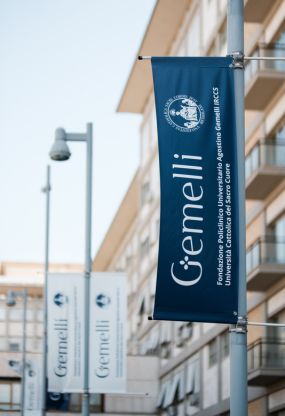Accredited School
The specialist in Neurosurgery must have gained theoretical knowledge and developed practical-professional skills in the field of normal and pathological anatomy, physiology and pathophysiology of the central and peripheral nervous system, clinical and instrumental diagnostics and surgical competence therapy in congenital and acquired cranio-encephalic, vertebro-medullary and peripheral nerve pathologies, in pediatric and adult age.
Basic educational objectives: in-depth knowledge of macro and microscopic anatomy, physiology, biochemistry; adequate knowledge of genetics, statistics and computer science; basic knowledge of medical-surgical semeiotics, laboratory and instrumental diagnostics, the medico-legal aspects that regulate health care in the specialist field and the management and organisational principles of care;
educational objectives of the type of School: in-depth knowledge of topographical anatomy of relevance for the surgical strategy, of the principles of asepsis, of the organization and environmental hygiene of operating rooms, of general and specialized surgical instruments and suture materials, of traditional and alternative surgical methods; basic knowledge, and relative practical experience, which allow correct assessment of the disease in individual patients, the choice of the most suitable medical and surgical treatment, the formulation of a risk-benefit balance, the setting of immediate and remote post-operative treatment, to address the problems related to emergency interventions.
Integrated training objectives (i.e. common core): The resident must have acquired satisfactory theoretical knowledge and professional competence in the clinical and instrumental diagnosis and treatment, even in emergency-urgency conditions, of the most common surgical pathologies. The student must acquire the fundamental knowledge of the pathophysiology of the various organs and systems, the theoretical and practical knowledge necessary for the recognition of diseases affecting the different systems of the body, the theoretical and practical knowledge of the main sectors of instrumental and laboratory diagnostics related to the aforementioned diseases, the acquisition of the ability to evaluate internal and specialist connections and influences. He must therefore be able to recognize the symptoms and clinical-functional signs with which diseases of various organs and systems manifest themselves, having acquired the fundamental diagnostic, therapeutic, psychological and ethical knowledge necessary for a global view of the patient and to evaluate intersystemic connections. To this end, the ability to clinically frame the patient on the basis of the anamnesis and physical examination must mature; develop critical and analytical diagnostic skills; become familiar with the main diagnostic procedures and laboratory-instrumental investigations; recognise and be able to deal with major medical emergencies; familiarize themselves with therapeutic resources in order to plan their optimal use and recognize their indications and contraindications, as well as the effects of interaction and possible iatrogenic accidents; acquire the fundamental notions relating to clinical research methodologies and pharmacological trials; know the fundamental problems related to prevention, public health and social medicine. The resident must also have acquired satisfactory theoretical knowledge and professional competence in the recognition and treatment, in emergency-urgency conditions, of the most common pathologies. Finally, the student must know, from a clinical and therapeutic point of view, the most common pathologies of competence of the other types of the class.
Similar or integrative objectives are : the acquisition of the basic knowledge and experience necessary to collaborate with other specialists in the diagnosis, setting of the strategy and the execution of treatment for the most frequently encountered pathologies, and in particular for those with multiple localizations, and to recognize the urgency and priority of the phases of the treatment itself.
The following are compulsory professionalizing activities to achieve the purposes of the typology:
- active participation in the diagnostic itinerary, including through diagnostic imaging techniques, in at least 400 patients, of which at least 120 cases relating to patients suffering from neoplasms or other neurosurgical pathology;
- at least 25 major surgery operations, 10% of which as the first operator. The rest as a second operator;
- at least 60 medium-sized surgeries, 25% of which are the first operator. The rest as a second operator;
- at least 300 minor surgeries, 40% of which are the first operator (outpatient and D.H. surgery procedures are included). The rest as a second operator.
Finally, the resident must have participated in the conduct of 3 clinical or basic controlled researches.
The student will be able to compete for the diploma after completing the professionalizing activities.
As part of the training course, the student will have to learn the scientific bases of the type of School in order to achieve full maturity and professional competence that includes an adequate ability to interpret scientific innovations and critical knowledge that allows him to consciously manage both assistance and his own updating; In this context, participation in meetings, congresses and the production of scientific publications and periods of attendance in qualified Italian and foreign institutions useful for his/her training may be envisaged.




